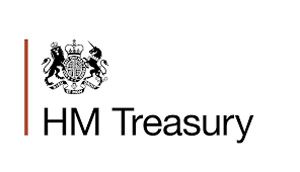 HM Treasury has launched proposals to reform the business energy efficiency tax system and introduce a new simplified tax and reporting scheme.
HM Treasury has launched proposals to reform the business energy efficiency tax system and introduce a new simplified tax and reporting scheme.
At the Summer Budget, the Government announced plans to review the current system with a view to improving its effectiveness and boost productivity. This review considers the interactions between business energy efficiency policies and regulations, including the Climate Change Levy (CCL), the Carbon Reduction Commitment Energy Efficiency Scheme (CRC) and taxes on other fuels.
Following consultation with businesses and reviewing overseas equivalents, the Government has suggested the current set of policies may not be best placed to achieve the cost-effective energy and carbon saving and productivity potential it has identified. There is evidence that the current suite of overlapping policies is complex and administratively burdensome, limiting the effectiveness of policy levers.
The proposals therefore suggest moving away from the current system of overlapping policies towards a system where a single business or organisation faces one tax and one reporting scheme. A single reporting framework would be developed to incorporate the most effective elements from the range of reporting schemes and delivers a significant net reduction in compliance costs associated with reporting schemes.
The Carbon Reduction Commitment (CRC) would be abolished, which requires large energy users in the public and private sectors to buy allowances for every tonne of carbon they emit. The revenue-raising element would be moved into a single business energy consumption tax based on the CCL.
There are also proposals to incentivise energy efficiency through measures such as tax reliefs in return for investments in energy saving measures, or investments in energy efficiency and low carbon measures ‘match-funded’ by Government.
The proposals have been welcomed by the UK Green Building Council (UKGBC), which claims the current policy landscape has been criticised by a number of organisations over its complexity and for diverting resources away from on-the-ground delivery of energy efficiency improvements.
Richard Griffiths, senior policy advisor at the UKGBC, said: “Moving to a position where organisations are faced with just one key reporting scheme should help to free up organisations’ resources and allow them to focus on delivering energy savings, rather than administration. Likewise, rationalising the tax regime could provide a clearer spur for action, and help to kick-start commercial retrofit activity after a few relatively flat years.
“But neither of these things will, alone, drive the scale of change that we need to reduce emissions from our buildings. To do that, we need new incentives that significantly strengthen the case for businesses to not only identify energy saving opportunities but put them into action, and so it’s encouraging to hear that Government is open to new ideas in this area, especially in the light of recent cuts to support for renewables.”
In its ten-point plan for buildings in the next Parliament, published in March 2015, UKGBC called for a streamlining of the non-domestic energy efficiency policy landscape.
The consultation will conclude on November 9 and can be read here.



